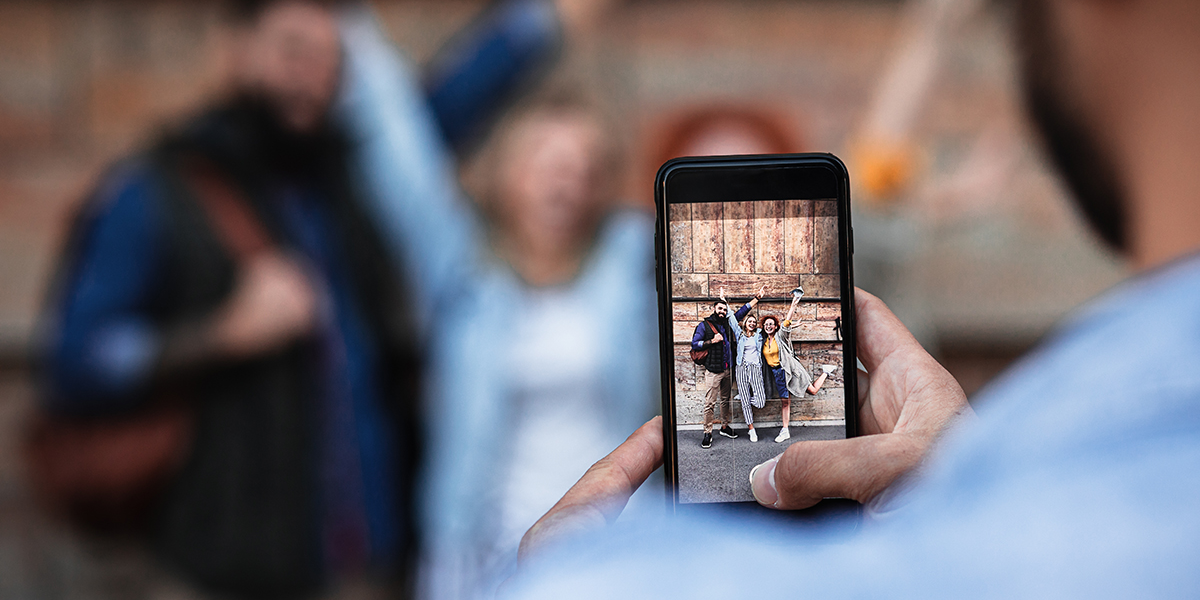Social media is driven by announcements that resemble those made in airports. "All passengers travelling on Air Canada flight 785 to Los Angeles, please proceed to Gate 28 to start boarding."
Constant broadcasting has made social media a stage for announcing new jobs, relationship updates, house or automobile purchases, degrees obtained, restaurants visited, and 'Where I'm on vacation.' Admittedly, sharing frequently can foster a sense of community, each sharing serving as a virtual pat on the back. However, the "announcements" leave many feeling stuck as they see others moving forward while they remain stationary, which is one of the many ways social media exacerbates mental health issues.
Not everyone needs to know your whereabouts and activities. It wasn't long ago that only those who had earned your trust were privy to such information. Today, many freely grant this privilege to their online followers and beyond. I choose not to share my personal life on social media because I find there's a beauty and a sense of sanctity in keeping the most meaningful parts of my life—most of it—private, sharing them only with those I choose. In an age of Snapchat stories posted in pyjamas and moisturizer, maintaining personal boundaries is essential for preserving self.
Why do people post pictures of restaurant meals, promotions, new cars, vacations, or selfies at concerts? What makes announcing, with pictures, that you baked an apple pie feel so good? The reasons range from achievement, self-worth and desire to belong. The next time you're about to post a selfie of yourself with your significant other on an exotic beach, take a moment to think about why you're sharing. What are you hoping to feel? Looking to gain?
Social media dangles the promise of recognition and fame—something we all crave. Validation is universally sought, and posting celebratory moments online is generally an attempt to attain popularity. When someone posts themselves with a group of friends celebrating their birthday at some midtown restaurant serving haute cuisine, they're concerned with popularity; otherwise, they wouldn't post. Aren't the people they're with not enough? What makes them think strangers are going to care that they turned 38?
Smartphones have turned us into our own paparazzi, posting on social media to draw attention to ourselves. Attention seeking stems from insecurity, a lack of self-esteem, and a lack of independent thought, and isn't grounded in reality. Fundamentally, many are looking outward for validation, which in turn creates a mindset that comes across as both ignorant and arrogant. Is there any reason to believe that others are interested in your life? Posting for validation compromises privacy and independence, leading to a cycle of validation-seeking that undermines self-esteem and independent thought.
The latent psychologist in me says that consistently posting snippets of your life is a sign of depression. When people are not inwardly satisfied with themselves, they often seek attention from external sources, such as excessively posting on social media. I've come to the conclusion that many people reach a point where they unconsciously enjoy making others envy their lives by frequently posting photos of their expensive purchases and possessions, or social gatherings, or, as is often the case, staged posturing.
While your ego makes you think that people are looking at you, wondering what's going on with you, and judging your every move, no one really cares. I often must remind myself that people don't care as much as I think (read: wish) they do, that there's no timeline for success, no race, no role the world needs me to play, otherwise it'll implode. Another constant self-reminder: digital lives are largely curated, with only the "I'm winning!" moments being projected.
Due to adult life obligations, catch-up sessions with friends tend to be fewer. When they do happen, they're often a checklist of "what's new" at work, with your spouse, kids, and mutual friends. Check, check, check. There are better questions. I have a friend who, even if it's been months since we last spoke, asks, "How's your day going?" instead of "What's new?" Not a huge adjustment, but it feels different. How's my day going? "Well, today I drank too much coffee, wrote until my laptop battery ran out, spilled mustard on my white dress shirt and called my mother, who's doing well. Overall, it's been a good day." Small moments, nothing remarkable, which, if I were to announce on my social media, would devalue my existence by making personal information publicly available.
Additionally, I'd be giving permission to other people, particularly strangers, to comment on my life and pass judgment; hence, I'd be giving others the ability to create angst I don't need. Furthermore, keep in mind that scams are prevalent; therefore, protecting your privacy is prudent. Oversharing on social media can attract unwanted attention and pose risks.
If what I wrote prompts you to dial back on posting your life moments, or even take a break from social media, there's no need to announce it, because that would be treating social media like an airport. Truth be told, nobody cares about your flights.
______________________________________________________________
Nick Kossovan, a self-described connoisseur of human psychology, writes about what’s on his mind from Toronto. You can follow Nick on Twitter and Instagram @NKossovan.

